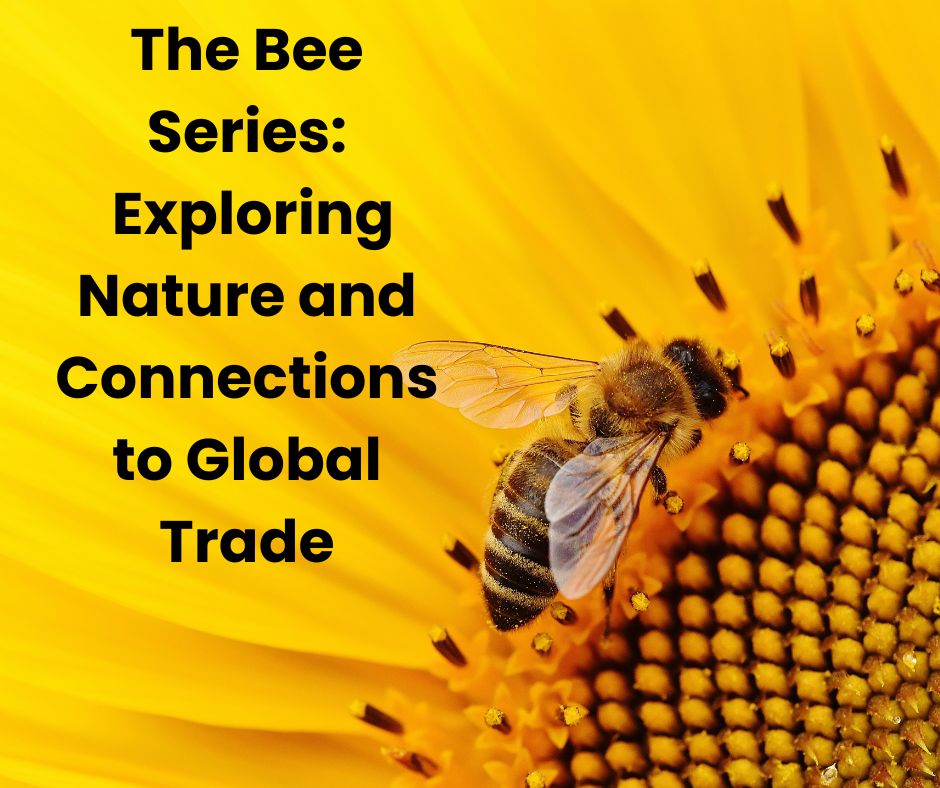The Bee Series: Exploring Nature and Connections to Global Trade

The Bee Series explores the intersections between nature, ecosystems, and global trade, highlighting their relevance to COP30 and the 2026 Festival of Inclusive Trade. As nations gather at COP30 to advance climate action, biodiversity conservation, and resilient food systems, bees offer a tangible lens to examine how ecological health underpins both environmental and economic sustainability.
Through their journeys and pollination work, bees reveal the deep interconnections between ecosystems and trade networks—and why protecting these connections is essential for climate resilience, inclusive economic growth, and global food security.
Purpose of the Bee Series
- Inspire curiosity about the links between biodiversity, climate resilience, and global trade.
- Highlight the ecological, economic, and climate-related role of bees.
- Demonstrate how healthy ecosystems sustain commerce and supply chains.
- Encourage discussion on sustainable, resilient, and inclusive trade practices aligned with COP30 goals.
Part 1 — The Hidden Workforce: Why Bees Matter to Life on Earth
Bees are small and ephemeral—often unnoticed—but their ecological impact is enormous. As pollinators, they sustain ecosystems, underpin food security, and support global trade networks. As discussions on climate-resilient agriculture and biodiversity protection make clear that pollinators are central to achieving global sustainability goals. Without them, food systems falter, export markets shrink, and prices for pollinator-dependent commodities rise.
The Foundation of Biodiversity
- Pollinate over 75% of flowering plants and about 35% of global food crops, including almonds, apples, berries, cucumbers, coffee, and canola.
- Support wildlife, stabilize soils, maintain watersheds, and regulate carbon cycles—contributing to climate mitigation and adaptation.
- Healthy pollinator populations make ecosystems resilient to climate shocks.
Economic Web of Pollination
- Pollination contributes US$235–577 billion annually to global agriculture (IPBES, 2016).
- Bees act as living supply-chain workers, increasing yields, and supporting export-oriented economies. Their role is both ecological and economic—a clear example of nature-based solutions in action.
Shared Responsibility
- Protecting pollinators requires collaboration across governments, farmers, researchers, industry, and citizens.
- Bees’ cross borders and landscapes, highlighting the interdependence of ecosystems, trade networks, and global climate action agendas.
Find out more about the Festival of Inclusive Trade: https://www.gtpalliance.com/reclaiming-inclusion-through-global-trade/festival-of-inclusive-trade-2026/